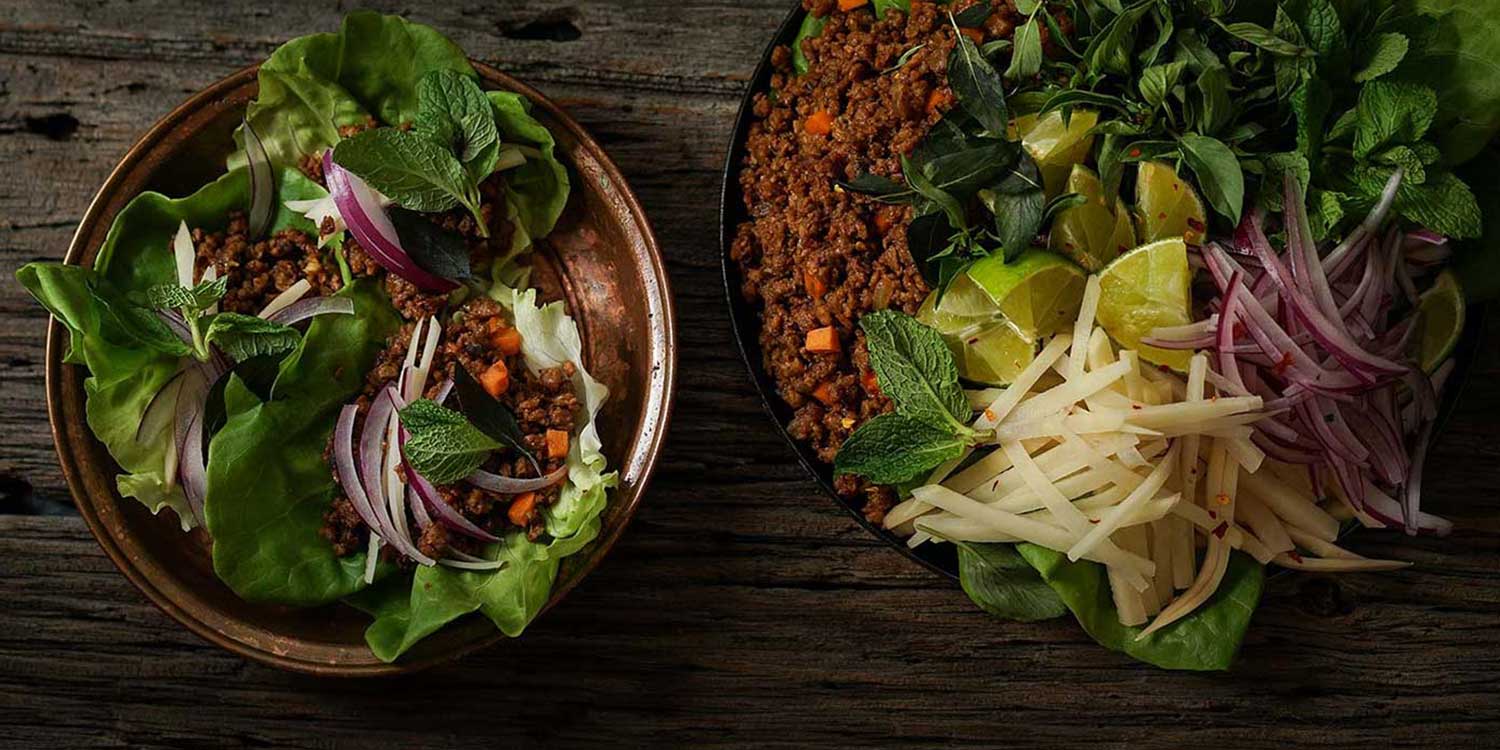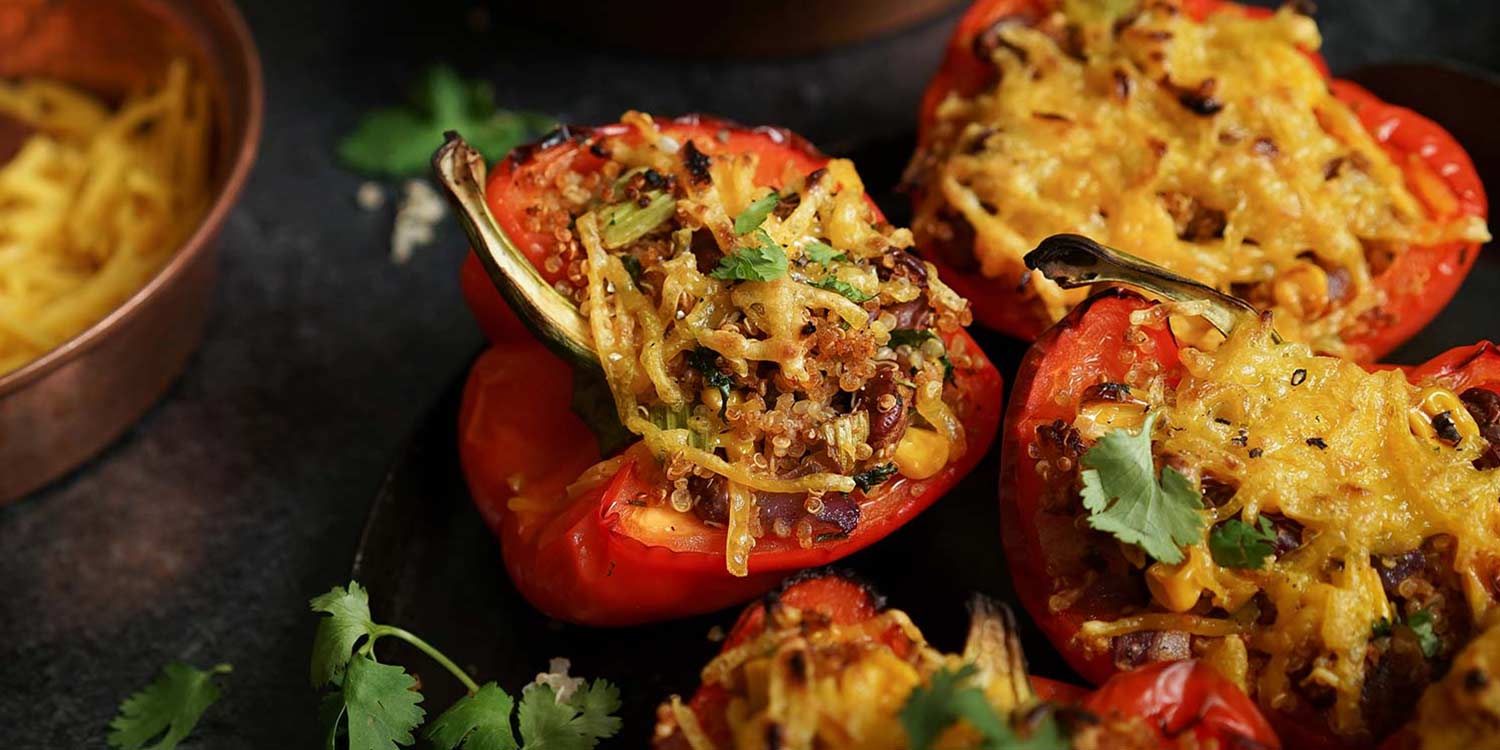

“在人类饮食中,动物性食品是能量的重要来源”
— 美国全国养牛业者牛肉协会(1)
在动物性食品中,最盛行和最危险的谬论就是“要获取蛋白质就必须食用肉类、奶制品及蛋类”。另一个常见的谬论则是“如果不食用肉类、奶制品及蛋类,我们将无法获取充足的‘能量’”。
詹姆斯·路米斯医生(James Loomis)是美国职棒大联盟“世界大赛”冠军队伍圣路易斯红雀队的前队医,他还曾担任美国国家橄榄球联盟“超级碗”冠军队伍洛杉矶公羊队的队医。他在影片《素食者联盟》(The Game Changers)中提道:
“你跟球队一起出席赛前晚宴会看见一场盛宴。宴席上有牛排和鸡肉,全是高蛋白食物,因为他们认为蛋白质有助于维持能量。其实不然。”
根据影片的深入挖掘,这个错误的“科学理念”始于德国著名化学家尤斯图斯·冯·利比希男爵(Baron Justus von Liebig),他错误宣称肌肉能量来自于动物蛋白(2)。这一谬论得到了十分广泛的认可,甚至促使了美国农业部首次建议人们应日常摄取蛋白质(3)。
根据我们在植物性饮食的优势进行的讨论,我们已经知道勤劳的肌肉主要依赖于糖原发挥作用,而糖原主要由植物中的碳水化合物提供。同时碳水化合物还为大脑提供所需的葡萄糖,让我们能够在长时间高强度的锻炼和比赛中保持清醒和专注。
植物性饮食的益处首先是帮助我们延迟疲劳、增强耐力。此外它们还有助于降低关节疼痛的风险,同时提高我们的有氧适能,改善免疫功能,并提升总体营养质量。

40%以上的跑步者称自己在跑马拉松过程中遇到了“撞墙期”。我们之所以会有这种筋疲力尽的感受是因为肝脏和肌肉中的碳水化合物已消耗殆尽,这将大大削弱我们的体能(4)。碳水化合物耗尽还会干扰我们的大脑,影响我们的专注力、协调力以及调整自身的能力,同时让我们感到要完成同样的运动量难度更大(5)。这些问题将会极大影响锻炼效果或竞技结果,让我们倍感受挫。
运动表现型饮食方案由于以肉类及其它动物性食品为主,因此它们通常以牺牲碳水化合物为代价为我们提供膳食脂肪(6-9)。而植物性饮食由于富含大量天然碳水化合物,因此更适合高能量的竞技运动以及其他活动(10)。
我们在植物性饮食的优势中提到,富含硝酸盐的蔬菜可以使肌肉更高效地发挥功能,并帮助我们保存有限的能量供应,而这可以极大地增强我们的耐力。例如在一项研究中,研究人员仅仅在饮食中添加甜菜汁便可以使测试对象的耐力水平比对照组高22%(11)。

即使不刻意食用富含硝酸盐的蔬菜,我们仅仅食用植物性食品即可抵抗疲劳。在另一项研究中,休闲跑步者仅在转成植物性饮食的4天后便可以将5公里跑的时间缩短6%。在这一案例中,研究人员猜测富含抗氧化物的植物性食品由于具有抗炎功能,因此也有利于跑步者缩短奔跑时间(12)。
植物性饮食的优势还解释道,如果炎症不加以抑制,不仅会延长锻炼和竞技的恢复时间,还会增加关节疼痛和患病的风险。
经常锻炼或经常参加体育竞技的人群,特别是在耐力项目中成百上千次重复某一动作的人群(或像影片《素食者联盟》中的斯科特·尤雷克一样,在2200英里的长跑中将某一动作重复数百万次)更有可能患上重复性劳损及退化性关节疾病(13-15)。

而饮食可以极大地影响我们的身体对这种重复性劳损作出反应,其反应方式就是增加或减少发炎。
植物性饮食的优势还提到,动物性食品和植物性食品对炎症的影响有着巨大的差异。例如一项研究发现,仅实践一个月的低碳水动物性饮食即可使炎性标志物增加46%,而实践高碳水植物性饮食的人群可以将同样的炎性标志物减少28%(16)。植物性饮食不仅可以减少炎性标志物(17),还可以降低患关节疼痛的几率。动物性饮食及植物性饮食的作用的确大相径庭,每周仅食用一次肉类的人群患上肌腱炎、退化性关节炎等软组织疾病的几率比完全避免食肉的人群高43-49%(18)。
鉴于以上种种优势,许多职业运动员选择转为植物性饮食便不足为奇了,因为植物性饮食不仅能够提升他们的运动表现,还能延长他们的职业生涯。
根据我们在瘦身减脂中进行的讨论,植物性饮食可以减少体脂,并且大多数植物性饮食人群的总体体脂率更低。低体脂不仅能影响我们的外观和总体健康状况,还能极大地影响我们的耐力。
在身体中携带过多体脂一口气奔跑数英里就如同负重奔跑一样,让人感到十分费力。最大摄氧量是我们在运动中消耗的最大氧气量。在最大摄氧量相同的条件下,不同体重的耐力运动员会有不一样的运动表现。体重较轻的运动员耐力更持久,在运动表现上优于体重较重的运动员(19、20)。
这种情况同样适用于职业运动员以外的人群,因为减重减脂可以将最大摄氧量提升15%(21)。甚至在不减轻体重的情况下,无肉的饮食方案也能减少体脂,提高有氧适能(22)。
适度训练可以提升免疫力,但高强度的训练反而会削弱免疫功能,增加专业运动员患上呼吸道感染的风险,如患感冒、流感甚至肺炎(23)。能够导致免疫功能下降的不仅仅有身体压力,还有困扰专业运动员以及普通人的精神压力(24)。
植物性食品在这一方面同样发挥着巨大的优势,它们可以通过不同方式提升我们的免疫功能(25-27)。有意思的是,其中一个方式仅仅是摄取更多的碳水化合物即可帮助我们保护免疫系统免受高强度锻炼的影响(28)。

另一种有益于免疫功能的营养元素是源自植物性食品的类胡萝卜素。这是一种抗氧化物,大量存在于黄色、橙色和红色的水果和蔬菜中,可以提升我们的免疫力(29)。β-葡聚糖是一种存在于燕麦和其它众多谷物中的纤维。这种纤维也证明可以提升免疫功能,即使是困扰我们长达一个月的感冒也能通过它大大缓解感冒症状(30)。β-葡聚糖还有助于让高压人群感到更加健康有活力(31)。正是由于植物性饮食的这些优势及其它益处,实践植物性饮食的跑步者患上过敏症的几率低于食用肉类和其它动物性食品的跑步者(32)。
不论您是职业运动员、上班族还是学生或家长,我们只要提升免疫力便能有更多时间投入训练、比赛、工作、学习或用于享受每日的生活。
我们在植物性饮食能否提供充足的蛋白质?中提到,耐力运动员需要比非运动员摄取更多的蛋白质,其每日摄入量大约为每公斤体重摄入1.2-1.4克(33)。很多人可能会担心实践植物性饮食无法获取充足的蛋白质,但研究表明不食用肉类的耐力运动员与食肉运动员一样,可以从每磅食物中获取等量的蛋白质(34)。同样,有一项现况调查对比了植物性饮食休闲跑步者和动物性饮食休闲跑步者的维生素B12及维生素D水平,结果发现二者并无显著差异(35)。
优质的营养指的不仅仅是蛋白质和维生素,因为许多其它营养元素也会对我们的感觉和表现产生积极影响,其中包括蔬菜中的天然色素、水果中的多酚以及坚果中的植物化学成分。所有这些营养元素均能提升运动表现,加速训练后的恢复进程(10)。
植物中大量有益于健康的营养元素使植物性饮食跑步者比动物性饮食跑步者在总体饮食质量方面获得了更高的分数(33)。
大家普遍误以为要想使身心均能量满满、活力充沛,我们必须食用动物性食品。但证据表明动物性饮食的作用恰恰适得其反。与之相反,植物性饮食拥有许多显著的益处,不仅可以帮助我们增加能量和活力,还能保护我们的关节,提高我们的有氧适能,支持我们的免疫系统,并提升我们的总体营养水平。
在竞技场上,运动表现即使只有0.5-1.5的提升也能让比赛结果大不相同(37),由此可见植物性饮食的种种优势可以产生极大的复合效应,不论您是耐力运动员还是想要保持精力充沛的普通人,均可以从植物性饮食中受益。
参考文献:
(1) Andreini, EM. How does upcycling relate to beef production? Beef Research. 2019.
(2) Whorton JC. Muscular vegetarianism: the debate over diet and athletic performance in the progressive era. J Sport Hist. 1981;8(2):58-75.
(3) Carpenter KJ. The history of enthusiasm for protein. J Nutr. 1986 Jul;116(7):1364-70.
(4) Rapoport, BI. Metabolic factors limiting performance in marathon runners. PLoS Comput Biol. 2010 Oct;6(10):e1000960.
(5) Thomas DT, Erdman KA, Burke LM. Position of the Academy of Nutrition and Dietetics, Dietitians of Canada, and the American College of Sports Medicine: Nutrition and athletic performance. J Acad Nutr Diet. 2016 Mar;116(3):501-28.
(6) Kanter M. High-quality carbohydrates and physical performance: Expert panel report. Nutr Today. 2018 Jan;53(1):35-9.
(7) Masson G, Lamarche B. Many non-elite multisport endurance athletes do not meet sports nutrition recommendations for carbohydrates. Appl Physiol Nutr Metab. 2016 Jul;41(7):728-34.
(8) Clark M, Reed DB, Crouse SF, Armstrong RB. Pre- and post-season dietary intake, body composition, and performance indices of NCAA division I female soccer players. Int J Sport Nutr Exerc Metab. 2003 Sep;13(3):303-19.
(9) Jenner SL, Buckley GL, Belski R, Devlin BL, Forsyth AK. Dietary Intakes of Professional and Semi-Professional Team Sport Athletes Do Not Meet Sport Nutrition Recommendations — A Systematic Literature Review. Nutrients. 2019 May;11(5):1160.
(10) Barnard ND, Goldman DM, Loomis JF, Kahleova H, Levin SM, Neabore S, Batts TC. Plant-based diets for cardiovascular safety and performance in endurance sports. Nutrients. 2019 Jan;11(1): pii: E130.
(11) Breese, BC, McNary MA, Marwood S, Blackwell JR, Bailey SJ, Jones AM. Beetroot juice supplementation speeds O2 uptake kinetics and improves exercise tolerance during severe-intensity exercise initiated from an elevated metabolic rate. Am J Physiol Regul Integr Comp Physiol. 2013 Dec;305(12):R1441-50.
(12) Baker ME, DeCesare KN, Johnson A, Kress KS, Inman CL, Weiss EP. Short-term Mediterranean Diet improves endurance exercise performance: A randomized-sequence crossover trial. J Am Coll Nutr. 2019 Feb;13:1-9.
(13) Aicale R, Tarantino D, Maffulli N. Overuse injuries in sport: a comprehensive overview. J Orthop Surg Res. 2018 Dec;13(1):309.
(14) Driban JB, Hootman JM, Sitler MR, Harris KP, Cattano NM. Is participation in certain sports associated with knee osteoarthritis? A systematic review. J Athl Train. 2017 Jun;52(6):497-506.
(15) Alentorn-Geli E, Samuelsson K, Musahl V, Green CL, Bhandari M, Karlsson J. The association of recreational and competitive running with hip and knee osteoarthritis: A systematic review and meta-analysis. J Orthop Sports Phys Ther. 2017 Jun;47(6):373-90.
(16) Miller M, Beach V, Sorkin JD, Mangano C, Dobmeier C, Novacic D, Rhyne J, Vogel RA. Comparative effects of three popular diets on lipids, endothelial function, and C-reactive protein during weight maintenance. J Am Diet Assoc. 2009 Apr;109(4):713-7.
(17) Craddock JC, Neale EP, Peoples GE, Probst YC. Vegetarian-Based Dietary Patterns and their Relation with Inflammatory and Immune Biomarkers: A Systematic Review and Meta-Analysis. Adv Nutr. 2019 May;10(3):433-51.
(18) Hailu A, Knutsen SF, Fraser GE. Associations between meat consumption and the prevalence of degenerative arthritis and soft tissue disorders in the adventist health study, California U.S.A. J Nutr Health Aging. 2006 Jan-Feb;10(1):7-14.
(19) Gregory J, Johns DP, Walls JT. Relative vs. absolute physiological measures as predictors of mountain bike cross-country race performance. J Strength Cond Res. 2007 Feb;21(1):17-22.
(20) Impellizzeri FM, Marcora SM, Rampinini E, Mognoni P, Sassi A. Correlations between physiological variables and performance in high level cross country off road cyclists. Br J Sports Med. 2005 Oct;39(10):747-51.
(21) Goran M, Fields DA, Hunter GR, Herd SL, Weinsier RL. Total body fat does not influence maximal aerobic capacity. Int J Obes Relat Metab Disord. 2000 Jul;24(7):841-8.
(22) Veleba J, Matoulek M, Hill M, Pelikanova T, Kahleova H. "A vegetarian vs. conventional hypocaloric diet: The effect on physical fitness in response to aerobic exercise in patients with type 2 diabetes." A parallel randomized study. Nutrients. 2016 Nov;8(11):671.
(23) Simpson RJ, Kunz H, Agha N, Graff R. Exercise and the regulation of immune functions. Prog Mol Biol Transl Sci. 2015 Sep;135:355-80.
(24) Pedersen A, Zachariae R, Bovbjerg DH. Influence of psychological stress on upper respiratory infection--a meta-analysis of prospective studies. Psychosom Med. 2010 Oct;72(8):823-32.
(25) Lampe JW. Health effects of vegetables and fruit: assessing mechanisms of action in human experimental studies. Am J Clin Nutr. 1999 Sep;70(3 Suppl):475S-90S.
(26) Li L, Werler MM. Fruit and vegetable intake and risk of upper respiratory tract infection in pregnant women. Public Health Nutr. 2010 Feb;13(2):276-82.
(27) Gibson A, Edgar JD, Neville CE, Gilchrist SE, McKinley MC, Patterson CC, Young IS, Woodside JV. Effect of fruit and vegetable consumption on immune function in older people: a randomized controlled trial. Am J Clin Nutr. 2012 Dec;96(6):1429-36.
(28) Peake JM, Neubauer O, Walsh NP, Simpson RJ. Recovery of the immune system after exercise. J Appl Physiol (1985). 2017 May;122(5):1077-87.
(29) Milani A, Basirnejad M, Shahbazi S, Bolhassani A. Carotenoids: biochemistry, pharmacology and treatment. Br J Pharmacol. 2017 Jun;174(11):1290-324.
(30) Talbott S, Talbott J. Effect of BETA 1, 3/1, 6 GLUCAN on upper respiratory tract infection symptoms and mood state in marathon athletes. J Sports Sci Med. 2009 Dec;8(4):509-15.
(31) Talbott SM, Talbott JA. Baker's yeast beta-glucan supplement reduces upper respiratory symptoms and improves mood state in stressed women. J Am Coll Nutr. 2012 Aug;31(4):295-300.
(32) Wirnitzer K, Boldt P, Lechleitner C, Wirnitzer G, Leitzmann C, Rosemann T, Knechtle B. Health status of female and male vegetarian and vegan endurance runners compared to omnivores-Results from the NURMI Study (Step 2). Nutrients. 2018 Dec;11(1). pii: E29.
(33) Bagchi D, Nair S, Sen CK. Nutrition and Enhanced Sports Performance: Muscle Building, Endurance, and Strength. London: Academic Press; 2019.
(34) Lynch HM, Wharton CM, Johnston CS. Cardiorespiratory fitness and peak torque differences between vegetarian and omnivore endurance athletes: A cross-sectional study. Nutrients. 2016 Nov 15;8(11). pii: E726.
(35) Nebl J, Schuchardt JP, Ströhle A, Wasserfurth P, Haufe S, Eigendorf J, Tegtbur U, Hahn A. Micronutrient status of recreational runners with vegetarian or non-vegetarian dietary patterns. Nutrients. 2019 May;11(5):1146.
(36) Turner-McGrievy GM, Moore WJ, Barr-Anderson D. The interconnectedness of diet choice and distance running: Results of the Research Understanding the Nutrition of Endurance Runners (RUNNER) Study. Int J Sport Nutr Exerc Metab. 2016 Jun;26(3):205-11.
(37) Domínguez R, Cuenca E, Maté-Muñoz JL, García-Fernández P, Serra-Paya N, Estevan MC, Herreros PV, Garnacho-Castaño MV. Effects of beetroot juice supplementation on cardiorespiratory endurance in athletes. A Systematic Review. Nutrients. 2017 Jan;9(1):43.